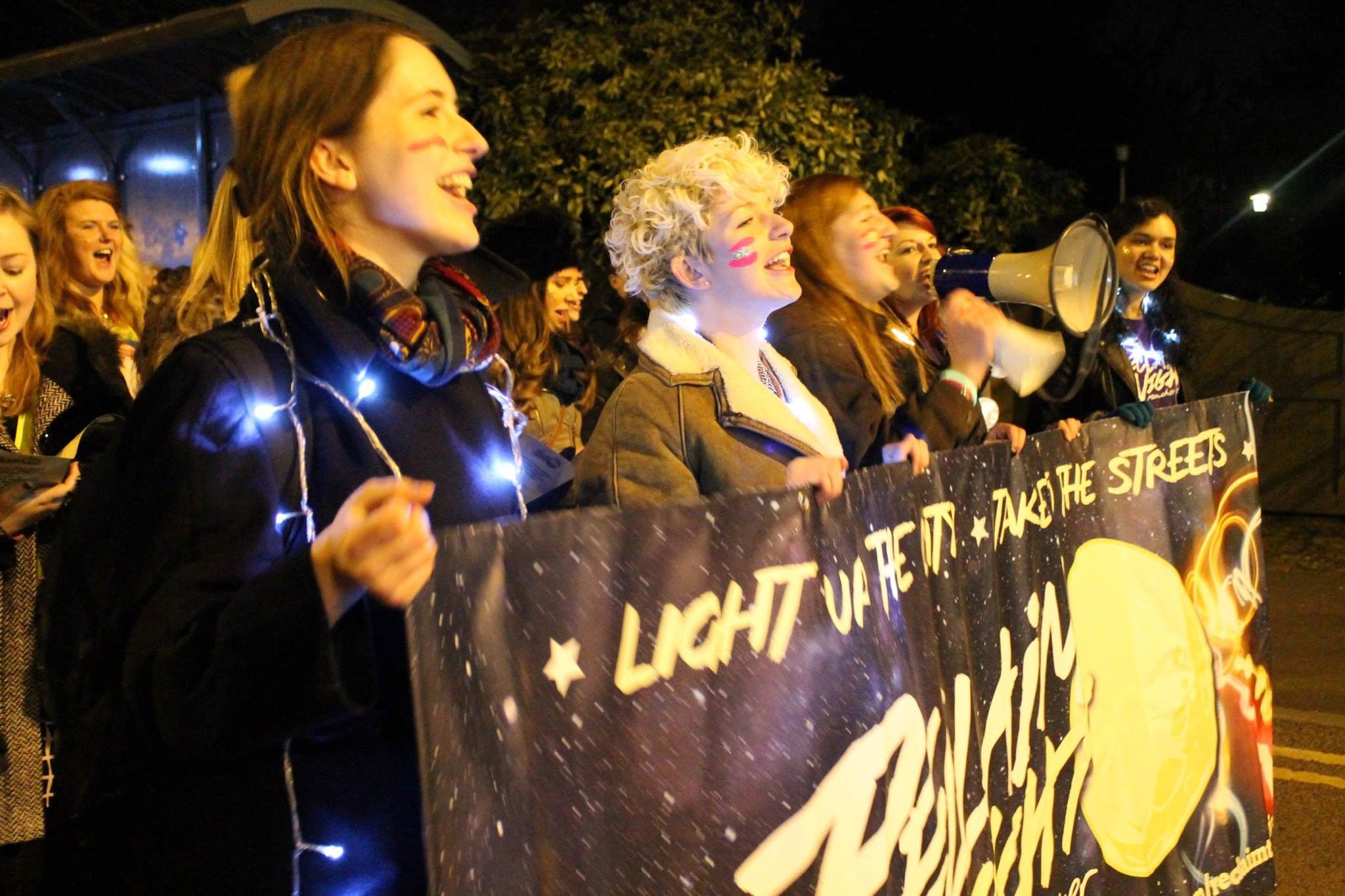Hundreds of students march through Manchester for Reclaim the Night

Your support helps us to tell the story
From reproductive rights to climate change to Big Tech, The Independent is on the ground when the story is developing. Whether it's investigating the financials of Elon Musk's pro-Trump PAC or producing our latest documentary, 'The A Word', which shines a light on the American women fighting for reproductive rights, we know how important it is to parse out the facts from the messaging.
At such a critical moment in US history, we need reporters on the ground. Your donation allows us to keep sending journalists to speak to both sides of the story.
The Independent is trusted by Americans across the entire political spectrum. And unlike many other quality news outlets, we choose not to lock Americans out of our reporting and analysis with paywalls. We believe quality journalism should be available to everyone, paid for by those who can afford it.
Your support makes all the difference."My little black dress does not mean yes," one banner read. "No means no," said another.
Last week hundreds of students took to the streets in Manchester for Reclaim the Night, part of a global movement against sexual violence. A recent survey of young women showed that 43 per cent have reported being sexually harassed in a public place in the last 12 months, and a 2013 Home Office study showed that one in five women have been sexually assaulted since the age of 16, yet only 15 per cent felt able to report this to the authorities. To take a stand against this the Reclaim The Night marches have been taking place all over the UK for international women’s week, marching at night, with protesters take a stance against the victim-blame culture that tells women to stay off the streets at night in case they invite sexual harassment.
Tabz O’Brien, women’s officer at University Of Manchester, says that Reclaim the night "is more than just a march - it’s a battle ground". And the Manchester march was certainly a glorious sight, with hundreds of protesters in neon lights, lighting up the student city with chanting, generating awareness for all the victims of sexual harassment. The protesters consisted of students and local men and women alike. This year's theme was sound and the protesters ensured their chants were heard loud and clear.
Inspired by America’s Take Back the Night marches, Reclaim the Night started out as a protest against the Yorkshire Ripper killings in the late 70s. Now put together by student unions over the UK, the Reclaim marches are responsible for bringing a very important issue to light within student cities. Over 400,000 women have been victims of a sexual offence and around 85,000 women are raped or sexually assaulted in England and Wales each year. Violence against women - as one banner read - "must stop".
Rape culture is still a prevalent issue in a society where rape victims are still often questioned on how much they drank and what they were wearing, subtlety placing the blame for sexual offence on them, rather than the perpetrator.
NUS women’s officer Kelley Temple says that "when it comes to sexual harassment and assault in particular, women are continuously blamed, whether it be for their appearance, if they’d had a drink, the company they keep or, quite simply, just being a woman.”
This was the general consensus felt during the Yorkshire killings in the 70s, when local women were given curfews by the police, triggering anger amongst women nationally - why should women have to alter and adapt to cater to the needs of sexual offenders? Reclaim the Night attempts to challenge this view, and if the march in Manchester was anything to go by, they are doing a great job.
From Cambridge to Coventry, women and men have been reclaiming the night. In Manchester, led by a women's-only bloc, the neon parade went strong and made sure that the voices of sexual harassed women were heard.
Photograph: Jessie Cohen
Join our commenting forum
Join thought-provoking conversations, follow other Independent readers and see their replies
Comments